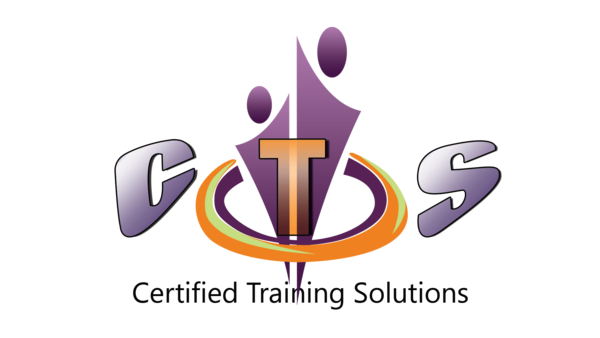Occupational Skills: Learning Support Facilitator NQF Level 5
R4,500.00
DESCRIPTION
The purpose of the Skill Programme is to prepare a learner to function as a Learning Support Facilitator
A Learning Support Facilitator (LSF) plays a crucial role in helping students with diverse learning needs. Their primary purpose is to ensure that all students, including those with disabilities or learning challenges, have equal access to educational opportunities and are supported in achieving academic success.
In essence, the role of a Learning Support Facilitator is to ensure that all students have an equitable chance to succeed, regardless of any challenges they may face in the learning process. Their work is vital in promoting a more inclusive, supportive, and effective learning environment.
Here are some key responsibilities and purposes of a Learning Support Facilitator:
- Support teaching and learning processes
- Identify, analyse and remedy learning barriers
- Implement and evaluate learning support methods
- Conduct formative assessments
- Facilitate learner support
COURSE DURATION: 30 Days
NQF LEVEL: 5
CREDITS: 20
Quality Assured Partner: Quality Council of Trades & Occupations (QCTO)
View Skills Programme Document: (211007)
View QCTO Accreditation Letter
Download Online Course Curriculum Here
Description
.Learning Support Facilitator Learning Outcomes
Learning Support Facilitators apply tools and methods to improve the performance of learners in their studies. A Learning Support Facilitator profile, evaluate, prepare, facilitate, support and evaluate learning of learners after teaching. A competent learner shall demonstrate among others the following attributes: communication, problem solving, coaching, emotional intelligence, mentoring and self-confidence
900045-000-00-KM-01 Barriers to learning, NQF Level 5, Credits 2.
Purpose of the Knowledge Module
The main focus in this module is on identification, analysis and development of counter-strategies for learning barriers during learning support.
KM-01-KT01: Learning profiling
- KT0101 Learning profiling of a learner—finding the gaps and barriers
- KT0102 Components / categories and type of information of learning profile
- KT0103 Analysis of learning profile of a learner
- KT0104 Use of learning profile information to assist the learner in overcoming learning barriers
KM-01-KT02: Learning barriers
- KT0201 Learning barrier
- KT0202 Types of learning barriers
- KT0203 Negative impact of learning barriers of learners
- KT0204 Measures to counter various learning barriers on learning process
900045-000-00-KM-02 Learning support methods and interventions, NQF Level 5, Credits 2.
Purpose of the Knowledge Modules
The main focus in this module is on learning support methods and interventions to assist learners to overcome learning barriers
KM-02-KT01: Educational learner support interventions
- KT0101 Methods of vocabulary remediation
- KT0102 Gaps in learning and educational methods of remediation
- KT0103 Lack of learner attention and educational methods of gaining and retaining learner attention
- KT0104 Learning hesitance and educational methods of restoring learner interest
- KT0105 Learner anxiety and exasperation and educational methods of mitigation and improving learner confidence
- KT0106 Learner confusion and educational methods of identifying misunderstandings and remediating
- KT0107 Learner drop out or failure and educational methods of learner retention
- KT0108 Educational methods and interventions to identify and remediate gaps in past learning
KM-01-KT02: Educational learner support interventions for social learning barriers
- KT0201 Various social problems that can cause barriers for learners and how these impact the learner in the context of education
- KT0202 Foundational techniques for assisting learners to overcome social problems in the context of the schooling or training environment
- KT0203 Foundational practical techniques for gaining parental interest and participation in the development of the learner
- KT0204 Foundational communication, components of understanding and conflict resolution techniques
900045-000-00-KM-03 Techniques for language and learning remediation, NQF Level 5, Credits 2.
Purpose of the Knowledge Modules
The main focus in this module is to develop skills for implementing methods and techniques of language and learning gaps remediation.
KM-03-KT01: Language remediation
- KT0101 Importance of grammar and common word vocabulary
- KT0102 Use of dictionaries and its parts
- KT0103 Methods of finding learner knowledge gaps in grammar and language
- KT0104 Interventions for grammar and language remediation
KM-03-KT02: Learning gaps and remediation
- KT0201 Methods of finding and filling gaps in knowledge
- KT0202 Methods of finding and filling language vocabulary gaps
- KT0203 Methods of building and developing knowledge retention in learners
900045-000-00-KM-04 Methods of formative assessment, NQF Level 5, Credits 2.
Purpose of the Knowledge Modules
The main focus in this module is methods of formative assessment of learners to assist in finding and filling gaps of knowledge for remediation
KM-04-KT01: Methods of formative assessment
- KT0101 Methods of formative self-assessment
- KT0102 Methods of formative peer assessment
- KT0103 Methods of formative practical assessment
Total number of credits for Knowledge Modules: 08
900045-000-00-PM-01 Profiling and identifying learning barriers, NQF Level 5, Credits 2.
Purpose of the Practical Skill Modules
The focus of the learning in this practical module is on the practical application of identifying and profiling learning barriers of learners and analysis and determination of methods and interventions to use to best assist the learner in overcoming learning barriers.
PM-01-PS01 Profiling and identifying learning barriers of learner
- PA0101 Identify indicators of learners struggling with learning barriers
- PA0102 Gather information from the learner about the learning barriers they are encountering
PM-01-PS02 Analyse learning profile information to determine how best to assist the learner in overcoming learning barriers
- PA0201 Analyse and evaluate the information
- PA0202 Identify potential learning barriers patterns and gaps
- PA0203 Recommend potential educational interventions to best assist the learner to overcome learning barriers
900045-000-00-PM-02 Facilitating learner support, NQF Level 5, Credits 8.
Purpose of the Practical Skill Modules
The focus of the learning in this practical module is on the practical application of facilitating learner support methods and interventions
- PM-02-PS01 Implement learner support methods and interventions
- PM-02-PS02 Language and learning remediation
PM-02-PS01 Implement learner support methods and interventions
- PA0101 Preparing for facilitation of educational learner support methods
- PA0102 Facilitate methods of educational learning support as indicated by learner profiling
- PA0103 Monitor progress of learner in overcoming learning barriers
- PA0104 Complete educational learning support interventions
PM-02-PS02 Language and learning remediation
- PA0201 Facilitate language and grammar remediation
- PA0202 Facilitate learning remediation
900045-000-00-PM-03 Conduct formative assessment, NQF Level 5, Credits 2.
Purpose of the Practical Skill Modules
The focus of the learning in this practical module is on the application and conduct of formative assessments.
PM-03-PS01 Develop learner profile
- PA0101 Conduct methods of formative assessment
Total number of credits for Application Skill Modules: 12
Skills Rationale
Almost a third of the country’s population is currently unemployed.
Of the 7.2 million unemployed persons in the first quarter of 2021, more than half (52.4%) had education levels below matric, followed by those with matric at 37.7%. Only 2.1% of unemployed persons were graduates, while 7.5% had other tertiary qualifications as their highest level of education (Business Tech. The chances of employment in South Africa based on level of education, 06 June 2021).
Education is a relevant and determining factor to employment, and thence to self-sustained livelihoods. It is not so much that there is a lack of education, but rather that the learners lose interest or fail to learn because they have never been taught how to learn. This is a missing bridge between the learner and education itself.
Further, it has been reported that there has been an increase of teacher’s assistants/aids who are unskilled in education methods and learning support skills. Many rural, urban and township schools utilize unskilled or low skilled teacher’s assistants, resulting in poor learning achievements. Thus, there is an urgent need to upskill learning facilitators and/or teacher’s assistants/aids with learning support methods in this sector.
The main focus of this skills programme is to teach the learner advanced learning (study) support skills and techniques, to apply in any subject (matter) studied to help others with their learning process (studies).
The Learning Support Facilitator’s focus is on educators in the schools and post school education and training sectors.
Learners will be from:
- Early Childhood Development
- Schools
- TVET Colleges
- Community Education & Training Colleges
- Comprehensive Colleges
- Universities and Universities of Technology
Credit Related Skills Programmes:
This training could be combined with other skills programmes.
- SAQA ID 101709: Occupational Certificate: Adult Literacy Teacher, NQF Level 5, 198 Credits.
- SAQA ID 20473: Advanced Certificate: Education, NQF Level 6, 120 Credits.
- SAQA ID 97691: Occupational Certificate: Community Development Practitioner, NQF Level 5, 212 Credits
Entry level requirements into this programme?
- Certified copy of you ID document
- NQF Level 4, with communication
- Curriculum Vitae (CV)
Target Audience
- Training Managers / Supervisors / HR Managers
- Trainers / Facilitators / Coaches
- Skills Development Designers (SDF’s) /
- Learning Material Designers / Moderators
QCTO LINKS OF INTEREST
QCTO Implementation of RPL Policy
Online technical requirements
The system requirements for the Moodle user are modest. All you really need is a solid, reliable internet connection and a modern web browser which can be downloaded within our e Learning platform.
Operating system
- Windows: Windows vista or higher.
- Macintosh: Mac OS X or higher.
Share This






